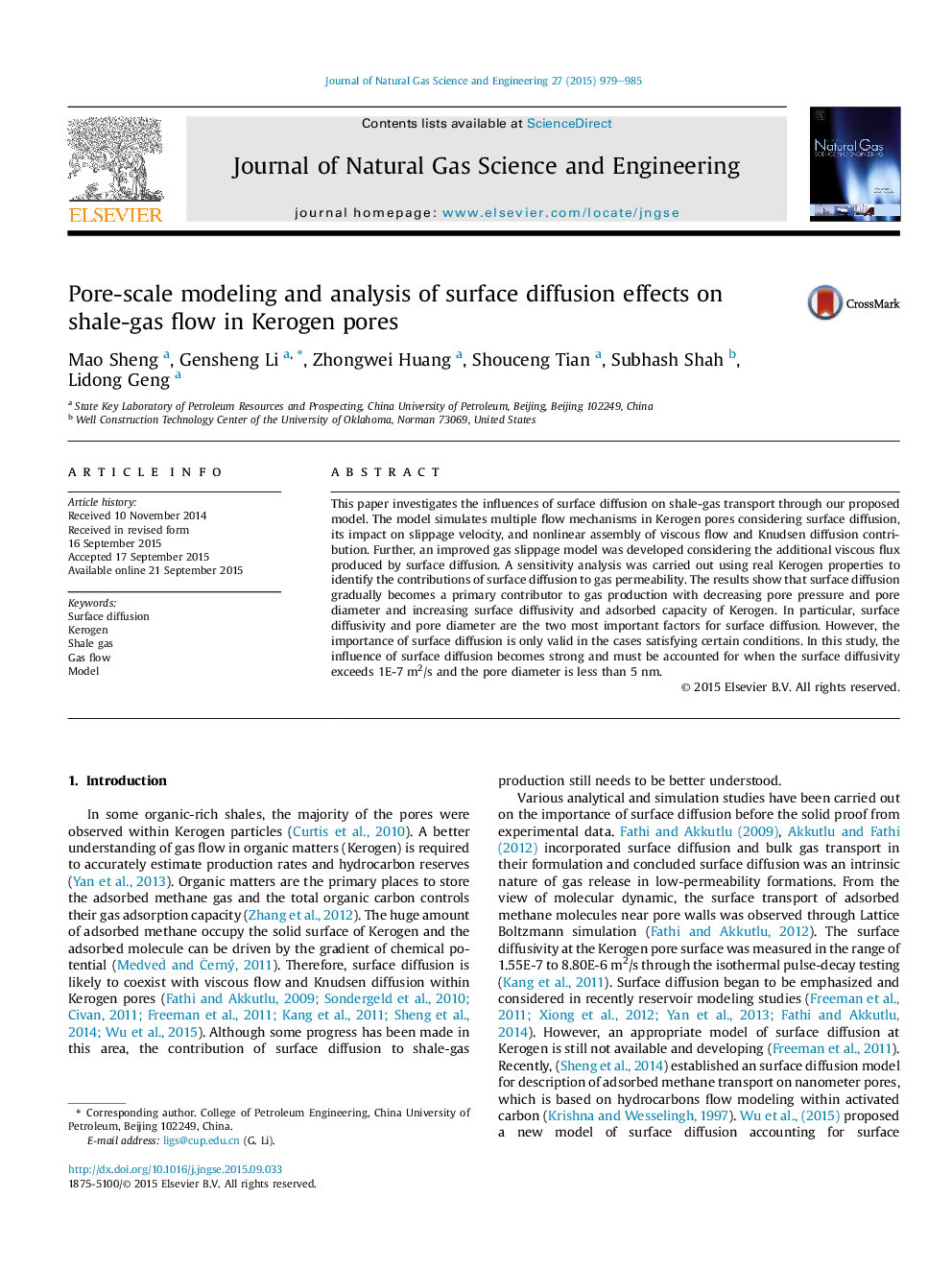| کد مقاله | کد نشریه | سال انتشار | مقاله انگلیسی | نسخه تمام متن |
|---|---|---|---|---|
| 1757645 | 1019129 | 2015 | 7 صفحه PDF | دانلود رایگان |

• The model covers multiple flow mechanisms particularly considering surface diffusion and its impact on slippage velocity.
• The importance of surface diffusion is only valid in the cases satisfying certain conditions.
• Surface diffusivity and pore diameter are the two most important factors for surface diffusion.
This paper investigates the influences of surface diffusion on shale-gas transport through our proposed model. The model simulates multiple flow mechanisms in Kerogen pores considering surface diffusion, its impact on slippage velocity, and nonlinear assembly of viscous flow and Knudsen diffusion contribution. Further, an improved gas slippage model was developed considering the additional viscous flux produced by surface diffusion. A sensitivity analysis was carried out using real Kerogen properties to identify the contributions of surface diffusion to gas permeability. The results show that surface diffusion gradually becomes a primary contributor to gas production with decreasing pore pressure and pore diameter and increasing surface diffusivity and adsorbed capacity of Kerogen. In particular, surface diffusivity and pore diameter are the two most important factors for surface diffusion. However, the importance of surface diffusion is only valid in the cases satisfying certain conditions. In this study, the influence of surface diffusion becomes strong and must be accounted for when the surface diffusivity exceeds 1E-7 m2/s and the pore diameter is less than 5 nm.
Journal: Journal of Natural Gas Science and Engineering - Volume 27, Part 2, November 2015, Pages 979–985